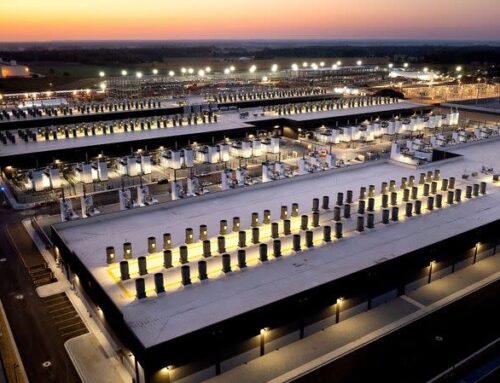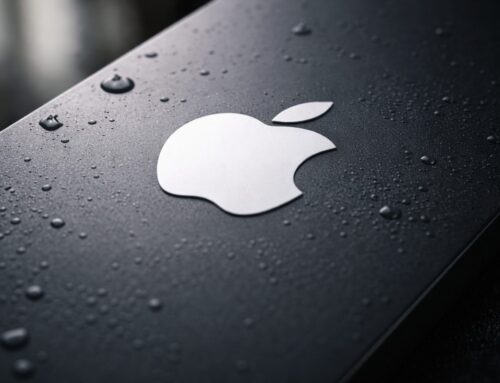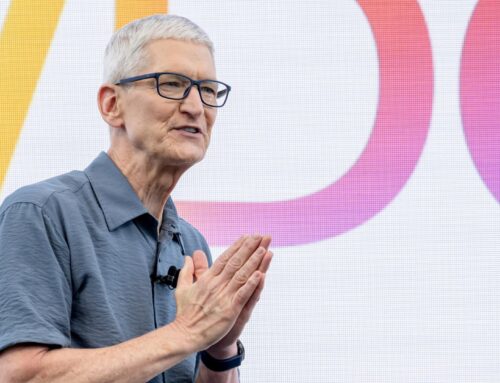Critic’s Notebook: The Cancellation of ‘Clean Slate’ Marks the End of Freevee’s Creatively
April 22, 2025
When news broke on Friday afternoon that Amazon wouldn’t be making a second season of the comedy Clean Slate, media reaction hovered between two viable extremes: “Amazon Cancels Show We Never Knew Existed” and “Amazon Canceled Norman Lear’s Kinda-Final Show.”
I can understand both approaches. Despite the presence of stars Laverne Cox and George Wallace, Lear’s posthumous credit was the highest-profile thing Clean Slate had going for it, and despite all of those elements, I never heard anybody mention Clean Slate out in the wild. It was an invisible show in a landscape that too frequently renders all but the biggest titles invisible.
For me, though, the abrupt end of Clean Slate represented the end of a different, less-heralded era: that of Freevee‘s half-hour development, one of the most creatively interesting and commercially botched pieces of brand-building in recent memory.
Freevee, the ad-supported branch of Amazon Prime Video before Amazon Prime Video became ad-supported and thus rendered Freevee’s demise inevitable, was officially shuttered last November. The streaming service built its name around a couple of categories of development.
There were the adaptations, spinoffs and retreads — as in “IP.” Shows like Bosch: Legacy, Leverage: Redemption and Alex Rider were either off-shoots of the sort of properties that have given Amazon its most established hits or minor-league versions of that sort of thing. None earned all that much buzz, but they weren’t designed to be buzzy; they were designed to be successful and they all received at least second seasons.
Then there were the half-hour shows, some clearly comedies and some defying classification, all designed as showcases for fresh voices and fresh casts, generally targeting underserved audiences. I put six shows in that category and you shouldn’t feel bad if you’ve only heard of a few of them.
There was Sprung, a post-COVID crime comedy that reunited Martha Plimpton, Garret Dillahunt and creator Greg Garcia, with Phillip Garcia and Shakira Barrera as its real stars. Sprung is one of my favorite small-screen reflections on the loosening of pandemic restrictions, boasting Garcia’s reliable blend of heart and silly humor.
There was Primo, from online favorite Shea Serrano, with Mike Schur among its producers. Primo focused on a chaotic Latino family in San Antonio, and it was a rowdy, well-cast ensemble with, also, a lot of heart.
There was Dinner With the Parents, about the regular dinners in a Jewish family. I probably won’t mention Dinner With the Parents again here, because although it was OK, it was so negligible nobody bothered to set up a Wikipedia page for it, which is saying something.
There was High School, a beautifully earnest coming-of-age dramedy about Tegan and Sara, the rare show you could compare to Freaks and Geeks and My So-Called Life without it feeling like hyperbole.
There was The Pradeeps of Pittsburgh, about an Indian family who arrive in Pittsburgh, engage in a rivalry with the family across the street, and find themselves facing interrogation at the offices of the Immigration and Naturalization Service. Pradeeps featured Naveen Andrews, Ethan Suplee and Megan Hilty among its recognizable stars, and although I disliked the interrogation framing device, it grew on me as it progressed.
And there was Clean Slate, which offered few laughs in its story of a trans woman (Cox) returning to her Alabama hometown and reconciling with her estranged dad (Wallace). But it was, once again, a show with a big heart and, like most of the shows above it here, it was a show with commentary that was pertinent for 2025. (Clean Slate, like The Pradeeps of Pittsburgh, premiered on Amazon after the plug had been pulled on Freevee.)
The seventh Freevee half-hour was Jury Duty, a breakout hit that was nominated for Emmys, but isn’t quite the same thing; the story — about how the best fix to the American legal system is an amiable bland white guy — blended comedy and reality, and although it will be back for a second season, it will presumably be a different show since the exact format isn’t repeatable.
That’s notable because those other six Freevee half-hours were all canceled after a single season.
That’s a wild track record, 0-for-6. More Quibi shows were renewed than Freevee half-hours.
But what’s equally wild is that, qualitatively, the Freevee half-hour output was fairly close to 6-for-6. In baseball parlance, I don’t know that Freevee had any home runs — High School came closest — but that’s a lot of doubles (Primo, Sprung) and singles (Pradeeps of Pittsburgh, Clean Slate) and maybe one reached-base-on-an-error (Dinner With the Parents). In an industry in which new streamers and cable networks often struggle to roll out one or two good comedies, Freevee developed, produced and aired six solid half-hours.
More than that, in an industry in which new streamers and cable networks often struggle to put together a programming slate with any form of coherence, those six shows all fit together in a way I found to be a satisfying expression of a certain inclusive ethos. Whether they focused on immigrants struggling to assimilate, high-schoolers trying to understand their sexuality, Latino uncles banding together to raise their nephew, ex-cons trying to connect with the COVID-ravaged American Dream, or a trans woman’s search for tolerance in a state rarely associated with tolerance, these shows, though often broad and silly, explored how you can feel like an outsider but still be part of a national tapestry (even if that nation, in the case of High School, was Canada).
It isn’t just that Freevee got six shows to air without a single dud to embarrass the streamer’s creative staff. Freevee programmed six shows that any network or streamer should be PROUD to have had on the air. And Amazon/Freevee canceled all six without a SINGLE renewal. Somebody should feel embarrassed about that.
Look at the Freevee half-hours. There isn’t a single bloated star vehicle, and while some of the creators are established names, there’s no sense that for any of them this was a paycheck gig. Other than the musical brand that is “Tegan and Sara” — a brand not even evoked by the wholly generic title of High School (the title of their memoir, but clearly not a title that could ever pop on Google or anywhere) — there was no sign of chasing nostalgia for a bad ’80s movie or a half-forgotten video game (Dinner With the Parents was based on a hit British series and changed the name so you’d never know).
Look. I’m not a babe in the TV coverage woods. I have no doubt that these shows all drew minuscule audiences. I don’t know how low; Amazon/Freevee doesn’t say. It’s impossible to ever know what constitutes success or failure at that streamer (and so many others), which is a tremendous amount of power for a corporate entity to have over a creative community. But I don’t doubt that these shows weren’t smash hits.
How could they have been? They were all promoted lightly and limitedly, but even if they hadn’t been, what could anybody have expected? If you order a show about two teenage girls, played by exceptional and exceptionally unknown twin actors Railey and Seazynn, listening to ’90s grunge rock and experiencing first loves in suburban Calgary, maybe your audience-building strategy has to be a long game. And if you make shows whose budgets were probably less than the second breakfast catering bill on Lord of the Rings: The Rings of Power, you know that the latter is for a big splash in the moment and the former are for building a brand and cultivating relationships in the creative community — things that might pay off five or 10 years later.
Making five or six shows like that and doing it well is a tremendous achievement; making five or six shows like that and not giving a single one the opportunity to become a valued part of your library of content is shameful.
My blame goes to the highest points at Amazon’s streaming pyramid — whether it’s Jeff Bezos (if he’s watched a single second of High School, I’ll eat a biodegradable shoe ordered off Amazon) or Jennifer Salke (gone now anyway) or simply a corporate ethos according to which a diversity of programming is offered and then decimated with such urgency that one might conclude there was no audience for it (rather than concluding that without promotion and strategy, an audience won’t appear magically out of the ether).
So farewell to Clean Slate and farewell to the entire Freevee half-hour slate, now cleaned off the board. You deserved better, the people who made you deserved better, and audiences deserve better.
Search
RECENT PRESS RELEASES
Related Post



